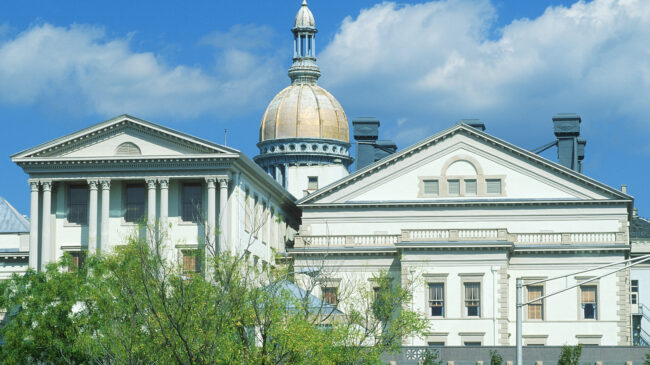A version of the following public comment was delivered to the New Jersey Senate Health, Human Services and Senior Citizens Committee.
The intention behind S299 to limit tobacco use, especially among youth, is to be applauded. However, the track record of such prohibitions should raise significant concern that the proposed ban would unintentionally promote inequalities in the criminal justice system, push New Jersey’s sales and tax revenue to other jurisdictions, and increase the illicit tobacco trade in the state while failing to improve public health.
Case Studies: Massachusetts, Canadian Provinces, and the European Union
Massachusetts’ ban on flavored tobacco products went into effect in June 2020. My colleague Jacob Rich of the Center for Evidence-Based Care Research at the Cleveland Clinic analyzed the flavored tobacco ban’s impact by comparing cigarette sales in Massachusetts before and after the ban was implemented. His research found a net increase in cigarette sales of 7.2 million packs within Massachusetts and its bordering states in the 12 months after the ban (to June 2021) compared to sales in the year leading up to the June 2020 ban.
Massachusetts experienced a 15.6 million pack increase in non-menthol cigarette sales in 2021, likely due to smokers switching to other products after the flavored tobacco ban according to the Tax Foundation. Massachusetts lost $125 million in tobacco tax revenue in its 2021 fiscal year.

Flavored tobacco bans in other countries have yielded similar unintended results. According to a study published by the Journal of Law and Economics, Canadian provinces’ menthol prohibition implemented from 2015-17 significantly increased non-menthol cigarette smoking among youths, resulting in no overall net change in youth smoking as they substituted products rather than quit. “Difference-in-differences models using national survey data return no evidence that provincial menthol cigarette bans affected overall smoking rates for youths or adults,” wrote the study’s authors.
The world’s largest experiment in menthol prohibition is the European Union, which includes 27 countries and had a population of 447 million people as of 2020. The EU menthol ban became effective in May 2020. Before the ban, Poland had the largest menthol cigarette market in the EU, making up 28 percent of total menthol sales. An analysis of Poland funded by the Norwegian Cancer Society in partnership with the Polish Ministry of Health found no statistically significant decline in overall cigarette sales in Poland after the ban. “We find that menthol cigarette sales fell at least 97% after the menthol cigarette ban across Poland and standard cigarette sales replaced them,” wrote the study’s authors.
Youth Cigarette Use and Criminal Justice Concerns
Advocates for the prohibition of menthol cigarettes correctly observe a disproportionate number of Black smokers choose a menthol product. It’s hoped the ban will dramatically reduce the Black smoking rate, especially among youth. Fortunately, youth smoking overall has fallen to a generational low, and the Black youth smoking rate in particular. According to the Centers for Disease Control and Prevention’s (CDC) 2021 High School Risk Behavior Survey, the smoking rate for Black and Asian youth in New Jersey was zero percent, and the smoking rate for white and Hispanic youth was 6.3 and 2.7 percent, respectively. The CDC’s National Youth Tobacco Survey shows that of the minority of youth who do smoke, 61.2 percent use non-menthol cigarettes.
From a public health standpoint, it’s hard to ascertain why non-menthol cigarettes, which are equally dangerous, will not be subjected to prohibition, and menthol products will be especially as non-menthol cigarettes are more popular among both youth and adult smokers. Because menthol cigarettes are overwhelmingly the choice of Black smokers, prohibition will necessarily lead to a concentration of the illicit tobacco market in the Black community. Massachusetts is already experiencing demands for further criminalization to tackle the unintended consequences of prohibition. The state’s Multi-Agency Illicit Tobacco Task Force is seizing so many black market flavored tobacco products they’re requesting more space to store them and are asking for new criminal penalties to make it easier for them to crack down on the smuggling and those possessing flavored tobacco products with intent to sell.
When the Biden administration announced the possibility of a federal ban on menthol cigarettes, the American Civil Liberties Union and other civil rights groups warned prohibition could disproportionately impact people of color, trigger criminal penalties, and prioritize criminalization over public health and harm reduction. The National Organization of Black Law Enforcement Executives (NOBLE), Grand Council of Guardians (GCGNY), National Association of Black Law Enforcement Officers (NABLEO), and Law Enforcement Action Partnership (LEAP) have argued that prohibitions of all kinds disproportionately affect communities of color.
In place of prohibition, New Jersey can further reduce its already low smoking rate by implementing a strategy of tobacco harm reduction by ensuring safer nicotine alternatives authorized by the Food and Drug Administration, such as e-cigarettes and snus, are available to those adult smokers who want to quit.

